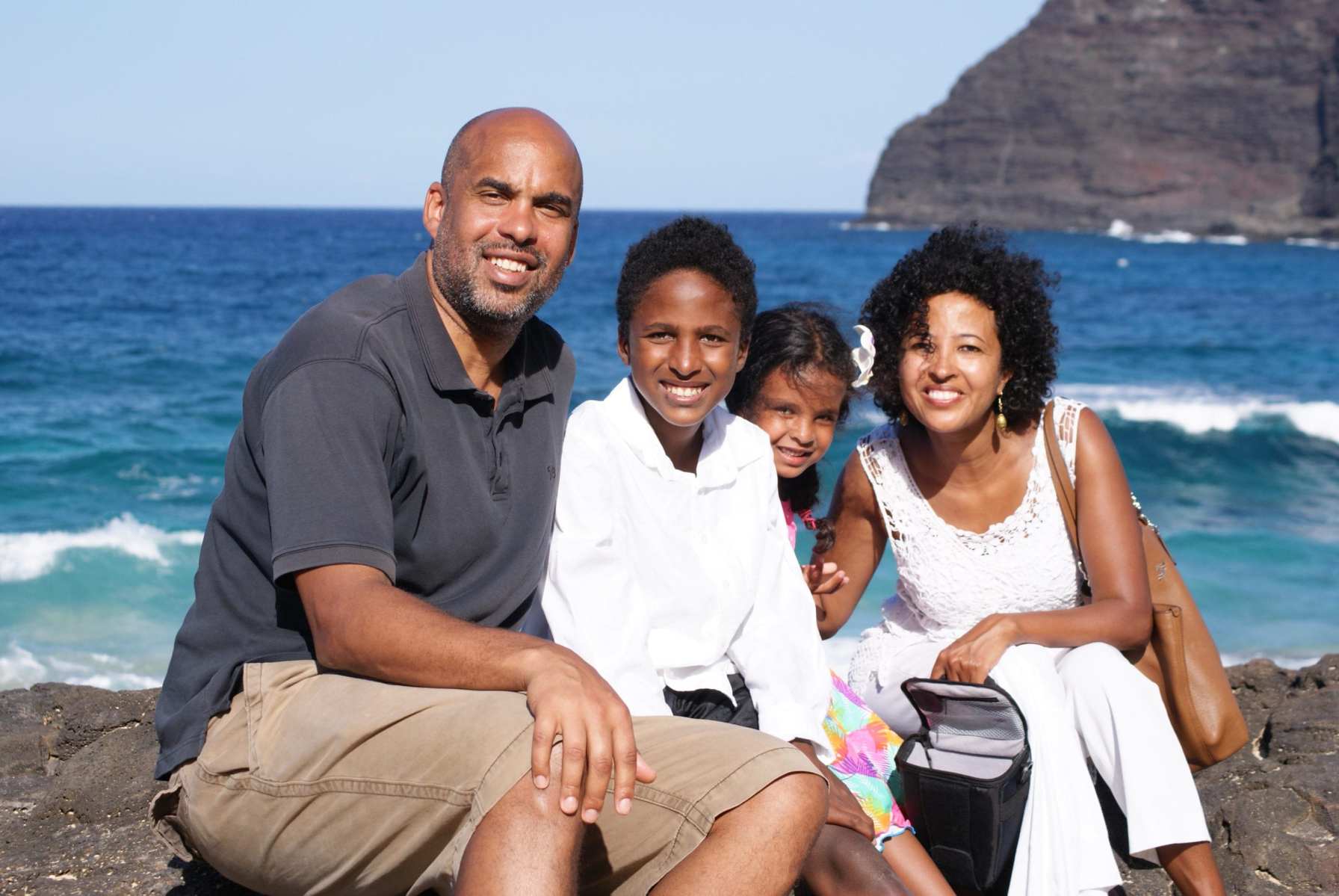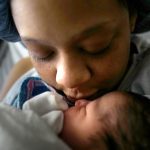We’re the only newsroom dedicated to writing about gender, politics and policy. Subscribe to our newsletter today.
When Damien Fair learned he won a “genius grant,” he immediately thought of his wife.
Fair, a cognitive neuroscientist at the University of Minnesota, focuses on children’s brains. His wife, Rahel Nardos, is a urogynecologist and global health researcher. Both care deeply about using their research to improve health outcomes for marginalized people, whether in the United States or abroad.
So the couple made what, in retrospect, seems like the obvious decision: They would use Fair’s $625,000 from the MacArthur Foundation to support Nardos’ passion of improving pregnancy-related health outcomes — and maybe also see if that work also improved children’s neurological development, too.
Fair and Nardos spoke to The 19th about their plans for the grant, how health research abroad can help address the United States’ pregnancy-related mortality crisis, and the systemic biases that undercut health research. They also shared how they’re managing it all while being parents of two children.
The interview has been edited for length and clarity.
The 19th: I was hoping we could start, just because it’s such a lovely story, about thinking about how the two of you plan to share the MacArthur money. What was the discussion like?
Fair: It was a little spontaneous. For years Rahel and I have been thinking about and brainstorming ways to kind of link our two passions. In regard to brain science, maternal and child health, and things of this nature.
After I’d won this award, it’s very secretive, right? They only allow you to tell one person — that’s it. I, embarrassingly, actually asked permission if I could tell my wife, because I was afraid I was going to screw it up and they were going to take it away from me.
So I told her, and then immediately, we started brainstorming ways that we might be able to leverage this money to kind of make some of these discussions we’ve had over the years a reality. We haven’t really gone into that much detail outside of recognizing that I’m very interested in getting people engaged in STEM careers that are in often marginalized communities here in the United States. And then at the same time, Rahel is a kind of world-renowned expert in capacity building in maternal and maternal child health in developing countries where in many respects, those communities are equally marginalized.
The devil would be in the details, but the idea is that somehow we could leverage this money to potentially engender even more support for a bigger goal that links the two.
The 19th: What kind of research topics, thinking about pregnancy-related health and child development, are you brainstorming right now to pursue with the money?
Nardos: We had worked on a Gates [Foundation-funded] project looking at what are the maternal predictors of outcome for babies, basically for brain development. What are the things during pregnancy and childbirth period that would impact brain development? And with the Gates grant, the interest was can this be applicable in low-resource settings as well? And if so, what do we need to study? And how is that going to help us develop interventions that are going to optimize outcomes for children?
I got really interested in this because I’m a urogynecologist by training. I was trained as an OB/GYN with a subspecialty in addressing pelvic floor disorders in women after childbirth. And a lot of the work I’ve done has to do with taking care, especially internationally, of women who have suffered tremendous trauma as a result of obstructed labor, lack of access to obstetric care.
We kept talking about how in those kinds of situations in countries where the resources are so low for pregnant women — in some places, women are just eating once a day, even as pregnant women. And they’re working 13, 14 hour days on the fields while they’re pregnant and not having access to obstetric care, making it difficult to carry their pregnancy properly and to have a safe delivery. I see the downstream impact of that on their health, on the women’s health. We started talking about, how does that impact the baby? The baby is growing in an environment that’s really constrained. And then we’re expecting the children to grow up and change the world, and they’re not achieving their fullest potential.
We started talking about combining these interests together. My interest is not as much in the neurobiology of the brain as Damien’s is, but my interest is in using this as an opportunity to improve outcomes for moms and babies. And also to build the capacity of our partners, to be able to do this kind of work. How do we train our partners to study the brain? How do we partner with them in the work that they need to push forward in maternal nutrition, maternal wellbeing? And of course, the things that we learned from those communities can also help our own communities here.
The 19th: Are there structural biases in terms of who is often dictating what research questions are asked, and whether we see that with regard to, in particular, health and pregnancy? Is that something that either of you have been thinking about or have encountered?
Fair: The short answer to your question is yes. It’s very tightly beholden to what people are asking for you to do for the funding.
Now, there is some leeway with the National Institutes of Health, but every kind of these institutes are all for different types of medicine or health. And each one of them has a strategic plan. They have a mission, and usually whatever you propose or however you do it, it’s got to fit that box. Otherwise they won’t fund it, because it doesn’t fit into their plan.
There are certainly biases and trends and all types of stuff that kind of drive where a lot of the funding will go as an act for academic research. It’s not always the most effective way to make big change, necessarily. You’re kind of banking on the hope that one of those grants or one of those things really, really hits something big. But I think what Rahel’s talking about, which I find very compelling is, is the investment in people. That investment has the opportunity to really have a much larger impact.
Nardos: When I started doing global health work, I used to organize a large medical group to travel to Ethiopia regularly to provide surgical care for women with pelvic floor problems. In any year, the most we can do is between 50 and 100 surgeries.
We did this for several years and then finally switched gears to partner with a few organizations, including academic institutions and local women’s health organizations to start a training program for the local doctors. We started a fellowship program and have graduated four fellows in urogynecology, probably one of the first trained doctors in this area in Ethiopia. And we have other fellows in our program. It actually really hit me this year during the pandemic, because this year we couldn’t send any teachers or mentors to go and work with our fellows. And guess what? Our trained and graduated fellows are holding the fort and they’re guiding our younger fellows, and the fellows are comfortable doing the surgeries themselves. The women are continuing to get care. They don’t need us.
We’re talking about empowering communities to do the work themselves. I think this is the kind of stuff that I think me and Damien really believe in, in whatever area we’re looking at, it’s about building that capacity of people to achieve their fullest potential and to help us get to a better place, because we can’t do it on our own.
The 19th: Are there lessons for this country to learn from the work that you two are doing abroad or here?
Nardos: The maternal mortality rate in the U.S. is the highest of any developed nation. Black and Native and Alaskan women are two to three times higher risk of maternal mortality. And if you look at women over the age of 30, actually that’s about three to five times, I think. Even if you take women who are highly educated, it’s still a high rate in those populations. So we have a long way to go to tackle that.
And one of the things about people who train in global health, we’re in the field. When they are exposed to global health education, by going to these countries and working in a meaningful way, they also tend to be much more likely to serve in underserved communities and to really understand health equity. One of the things to improve outcomes for women is to have providers who really understand the social and cultural determinants of health, and to really care about policies and things that are impacting women’s health and the more experience they get in low-resource settings, the more likely they will be able to change things locally at home.
My dream here at the University of Minnesota is to create some sort of a formal training program for health care providers in global local health, in a way that’s going to continue to generate future health care providers who can be leaders in this area. This institution has so much potential in terms of people who are very passionate about this thing in all different departments and professional schools. So creating a stream, a pipeline like that, would be for me one of the things that I will be pursuing.
I am very passionate about pelvic floor health in women. One of my visions with my department is to build a comprehensive pelvic floor center that integrates multiple disciplines and health care providers together, where we specialize in pelvic floor — which is prolapse incontinence, bladder pain, recurrent urinary tract infection, those kinds of things that are very, very common, especially in women after childbirth. And as we age those are very, very big problems that women have a hard time talking about, because they’re embarrassing.
I’m very interested in creating a safe space for women to come and get comprehensive care for that, including care from not only doctors and surgeons, but physical therapists and mental health people. And a model that is welcoming to all people, diverse people from different cultures. Because if you think that it’s hard to talk about this kind of stuff in the U.S. for women, it’s much harder for women who come from other countries where discussing private things like this are even more challenging.
The 19th: That is something that actually, when we were talking about sort of the systemic biases and what kinds of questions are asked, I think that may be an area where that’s impacted. Just as you sort of mentioned, it’s something that women often don’t talk about.
Fair: These kinds of systemic biases are a real problem. In fact, I just kind of assisted a group that spoke at the University of Minnesota about how there’s these kinds of hidden biases that people often just don’t even think about at all, that are really holding both women, and women of color in particular, down.
Sometimes it’s something so simple, like how people cite their own work in their papers. Right? And so we write a paper, you have all these citations of where you got information from. The number of citations that you get for a given paper that you wrote — people use it for getting promoted or getting the next grant or getting that next thing or the award.
What we know now is that women, and women of color and men of color, they’re under-cited people. There’s a lot of folks who just won’t cite their work, even though it’s totally relevant. When I learned about this for myself, I was like, ‘Oh my God, am I doing that?’ It’s just the way these biases and things just kind of manifest themselves in the things that we actually use for real currency, for how people make upward trajectories in their careers. And so there are a lot of things like that need to be fixed in our systems so that everybody has a fair shot.
The 19th: I do want to ask a bit about your family life, too. it seems like it’s very difficult to be in a two-parent household where both of you are medical researchers with really involved careers. How do you make everything work?
Fair: We both are supportive of each other’s time. We’re both very busy, and we fill in for each other often and take turns and are relatively flexible and understanding when things are chaotic. Sometimes that’s hard to do.
The other part is that we particularly, because I travel quite a bit and Rahel’s a surgeon — it’s not like she can just not go into work — so we’ve had a lot of support from our family and my parents and a few others to help with the kids. But I think both of us are willing to sacrifice certain aspects of what we might normally do to make sure that the kids are taken care of.
Particularly when I was at the beginning of my career, I was kind of a madman, just working like crazy. But I realized I wasn’t spending enough time with my son. He was very young at the time, and we just said, OK, that’s it. I was like, change my schedule, cut everything off, I’ll pick him up from school. I realized after like a month or two months, nothing changed, it was all the same.
Nardos: I grew up in Ethiopia and I didn’t even know the meaning of vacation until I came to America. We didn’t have extra whatever — you don’t go to an after school class or this thing and that thing that most kids need to be involved in right now. And I still feel like I turned out OK. So I don’t get too crazy about stuff like that. I think when you’re raising your kids here, if you keep comparing yourself with other families and all the things you should be doing, all the things that kids should be involved in, and you’re still trying to be a professional and all of that, it could be very overwhelming.
But I think growing up in that environment where I kind of realize the most important thing is just having a loving family that’s there for you and provides a safe place to live in and food to eat every day and clothing to wear. I think everything else will be fine. And I think that really helps me to not worry about all the little things.






